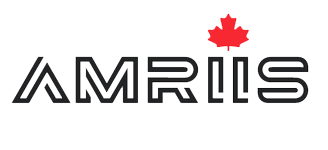In order to improve the immigration system and simplify procedures for international students, Canada has recently implemented significant changes that will affect those considering pursuing their studies in the country in the coming years.
Studying in Canada

These temporary adjustments aim to enhance oversight, alignment, and establish a stronger framework for students and the Canadian government.
Temporary measures for two years
To adapt to the evolving global landscape, these new measures will be implemented as temporary changes over a two-year period (2024 – 2026). This period will allow for the evaluation of the effectiveness of the modifications and will provide an opportunity to make further adjustments if necessary.
Obtaining letters of attestation
Starting January 22, 2024, any application for a study permit submitted to Immigration, Refugees and Citizenship Canada (IRCC) will require an additional attestation letter from a province or territory. Although this introduces an extra step in the application process, it aims to strengthen the verification process and establish a link between federal and provincial authorities. Each province or territory is actively working on developing the procedures to issue these attestation letters, with the goal of implementing them by March 31, 2024. As additional details become available for each region, the IRCC will provide updates on its website.
Changes to Post-Graduation Work Permit (PGWP) Eligibility Criteria
Starting September 1, 2024, the eligibility criteria for the Post-Graduation Work Permit (PGWP) program will undergo significant changes. Students entering a study program under a program licensing arrangement will no longer be eligible to obtain a PGWP after graduation. This decision aims to address concerns regarding supervision and potential abuses of this type of permit. Additionally, graduates from master’s programs will now have the opportunity to apply for a three-year work permit, providing them with a longer period to gain valuable work experience and potentially transition to permanent residency.
Restricted Open Work Permit for Spouses of International Students
A key change concerns the availability of open work permits for the spouses of international students. Under the new regulations, open work permits will only be accessible to the spouses of international students enrolled in master’s and doctoral programs. Unfortunately, the spouses of students in other levels of study, including undergraduate programs and colleges, will no longer be eligible for this benefit. This adjustment aims to balance the encouragement of highly qualified immigration with the oversight of associated benefits.
As Canada positions itself as a welcoming destination for international students, these regulatory changes underscore the country’s commitment to ensuring a fair and transparent immigration system. While these modifications may pose initial challenges, they are designed to create a safer and streamlined process for international students aiming to pursue their educational and career goals in Canada.
At Amriis, we encourage all international students to stay informed by regularly checking this page and our official channels for updates. More specific details will be revealed by IRCC in the coming months.

Ready to get started?
Explore your immigration options in Canada! Complete our free assessment today, and a member of the AMRIIS team will contact you to discuss the opportunities available to you.



